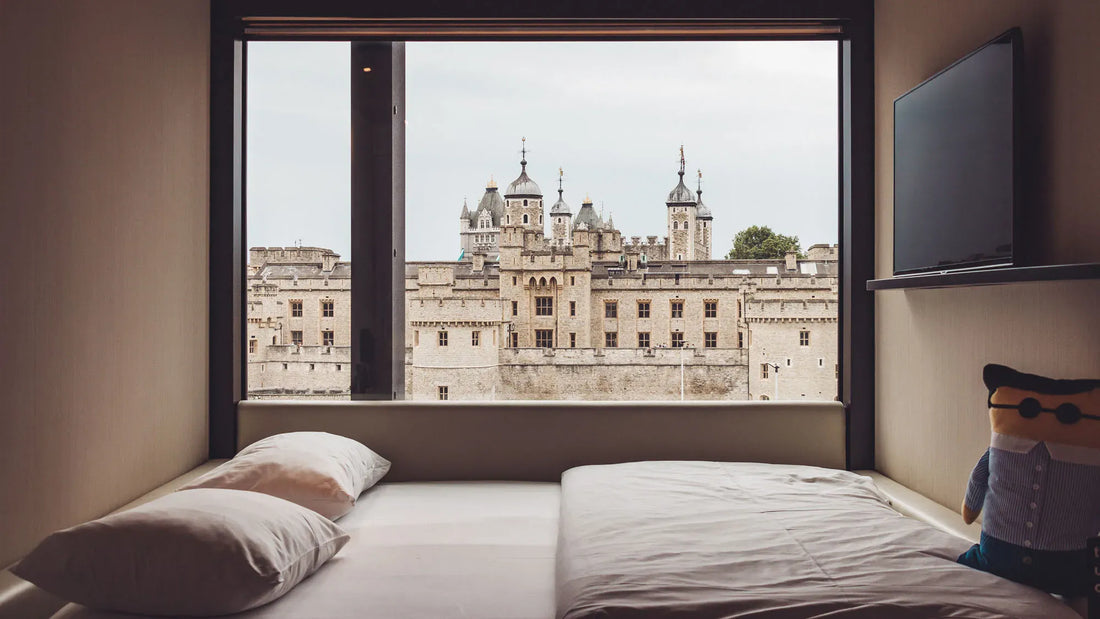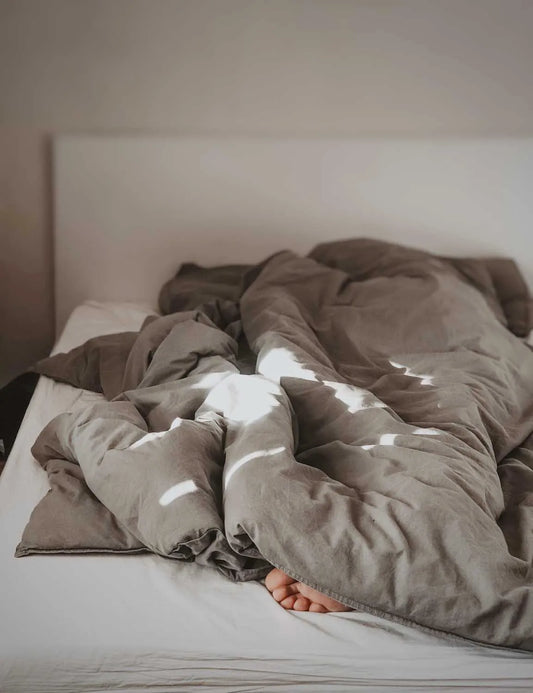Dive into the world of better sleep hygiene and learn 10 essential tips for improving your sleep habits. At Remly Sleep, we're dedicated to leveraging research for product development, and The Dream Lab is our way of sharing the knowledge we gain with you.
In today's fast-paced world, sleep often falls by the wayside. However, it's an essential aspect of our overall health and wellbeing. Whether you're a night owl or an early bird, the quality of your sleep can significantly impact everything from your mood to your productivity. Our bodies require sleep to recharge, repair, and regenerate. But what happens when sleep eludes us? What happens when we're left tossing and turning, wrestling with a series of restless nights?
Struggling to get a good night's sleep is a common issue. You're not alone. Millions of people worldwide face sleep issues that can impact their overall well-being. But fret not! There are methods and practices to overcome this. Improving your sleep hygiene can make a significant difference. In this comprehensive guide, we'll explore ten essential tips to help you sleep better and wake up feeling refreshed.
1. Create a Sleep-Friendly Environment
Your bedroom should be a sanctuary for sleep. It's essential to create an environment that is conducive to rest and relaxation. Think about the factors that can impact your sleep quality. Your bedroom's temperature, the amount of light, and the level of noise can all play a crucial role in how well you sleep.
Keep your bedroom cool, dark, and quiet. A cool room can help lower your body temperature, a critical factor in initiating sleep. Invest in blackout curtains to block any external light. If noise is an issue, consider using a white noise machine, earplugs, or a fan to create a consistent, soothing sound. A comfortable mattress and pillows that support your preferred sleep position are also important. Consider our Remly Sleep Mask for an enhanced sleep environment.
2. Stick to a Consistent Sleep Schedule
Our bodies thrive on routine. We are creatures of habit, and our internal body clock, or circadian rhythm, responds well to regularity. Establishing a consistent sleep schedule helps regulate this internal body clock, making it easier to fall asleep and wake up each day.
Aim to go to bed and wake up at the same time every day, even on weekends. Your body will thank you for the consistency! Remember, it's not just the quantity of sleep that matters but also the quality. Consistency can greatly improve your sleep quality.
3. Limit Exposure to Screens Before Bedtime
As we've covered in our article on how technology affects sleep, electronic devices emit blue light that can interfere with your body's production of melatonin, the sleep hormone. The artificial light can trick your brain into thinking it's still daytime, disrupting your circadian rhythm and making it harder to fall asleep.
To promote better sleep, avoid screens at least an hour before bedtime. Instead, engage in relaxing activities such as reading a book, taking a warm bath, or practicing meditation. If you must use screens, consider using our Remly 70% Blue Light Blockers to mitigate the effects of blue light.
4. Watch Your Caffeine and Alcohol Intake
Caffeine and alcohol can disrupt your sleep patterns. They may affect the amount of REM sleep you get, which as we've discussed in our article on REM sleep, is a critical part of the sleep cycle. Limit your caffeine intake to mornings and early afternoons, and avoid consuming alcohol close to bedtime. Remember that caffeine can be found in coffee, tea, chocolate, and some medications, so be mindful of your overall consumption. Alcohol, on the other hand, might make you feel sleepy, but it reduces the quality of your sleep.
5. Incorporate Regular Exercise
Exercise has numerous benefits for your overall health, including improving sleep quality. Regular physical activity can help you fall asleep faster, sleep longer, and achieve deeper sleep. Engage in regular physical activity, but avoid vigorous workouts close to bedtime as they can increase your energy levels and make it difficult to fall asleep. Instead, opt for gentle exercises like yoga or stretching in the evenings.
Want to learn more? Check out our articles on The Best Time to Work Out for Optimal Rest.
6. Establish a Relaxing Pre-Sleep Routine
A calming bedtime routine signals to your body that it's time to wind down. The things you do before you sleep can set the tone for the kind of sleep you'll have. Develop a routine that works for you, whether it's reading, listening to calming music, or practicing deep breathing exercises.
Find what helps you relax and make it a consistent part of your nighttime ritual. For instance, you could try some of the sleep meditation techniques we've recommended for peaceful rest.
7. Manage Stress and Anxiety
Stress and anxiety can wreak havoc on your sleep. It's not uncommon to lie awake at night with your mind racing with thoughts and worries. It's essential to address these issues and incorporate stress-reducing techniques into your daily life. Consider mindfulness meditation, journaling, or speaking with a therapist to help manage stress and anxiety effectively. Our article on the impact of sleep on mental health can provide further insights into this relationship.
8. Be Mindful of Your Diet
What you eat can impact your sleep. Your diet and your sleep quality are more interconnected than you might think. Aim for a balanced diet rich in fruits, vegetables, whole grains, and lean proteins. Avoid heavy, spicy, or high-fat meals close to bedtime, as they can cause indigestion and disrupt your sleep. Instead, opt for light, easily digestible foods in the evening.
Discover more in our article about the connection between diet and sleep.
9. Limit Daytime Naps
While a quick power nap can help recharge your energy levels, long or irregular naps during the day can disrupt your sleep. If you have trouble sleeping at night, try eliminating daytime naps or limit them to 20 minutes and early in the afternoon.
Discover more in our article about The Power of Naps and How to Nap Effectively.
10. Seek Professional Help If Needed
If despite following these tips, you continue to struggle with sleep, it might be time to consult with a sleep specialist. Persistent sleep problems could be a sign of a sleep disorder, such as sleep apnea or insomnia, which require professional diagnosis and treatment.
At Remly Sleep, we're passionate about helping you sleep better. We hope these tips will help you improve your sleep hygiene and overall sleep quality. Remember, good sleep isn't a luxury, it's a necessity. Happy sleeping!
Thank you for exploring with us at The Dream Lab. Remly Sleep is on a mission to make you sleep better by sharing the latest sleep research and incorporating this knowledge into our innovative products. We're excited to journey together and discover more insights on sleep and well-being.




